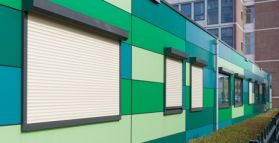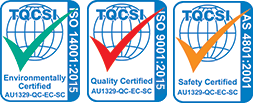Australia has been watching the modular construction market place, wrestling with the question; will Modular
design and construct show it’s true potential here or continue to be a
last resort solution?
For developers trying to make their costs tally, those seeking a partial solution (such as pod bathrooms) or total solution (considered turnkey,) Modular is currently an industry buzzword.
Modular construction has received poor appraisal in Australia, typically being associated with dormitory accommodation (popularly known as dongers) in a mining boom or at best a budget housing option.
Faced with a lack of infrastructure to support traditional construction modes and demand for a speed-based solution, modular construction proved invaluable to Australia’s booming resources sector in recent decades.
Construction
time savings in modular construction are rarely disputed and TPM Builders has reviewed feasibility studies which indicated time savings of range 25% to 40%. Unless components from cheaper labour source countries are in play,
physical construction costs (per sq m) may be similar.
When construction
time savings are secured, cost savings might emerge from the favourable knock-on effects, such as risk factors for construction companies and faster returns for developers.
The options available in South East Queensland include locally-produced modules, sometimes a one-size-fits-all solution, which may be problematic to customise. Another is the importer of 100+ modules per delivery, offering more customisable flexibility, constrained by turnaround times of 4 to 6 weeks. The emerging rationalisation of international quality control systems has reduced the exposure to inconsistencies in quality standards. Indeed, Australian standards may be certified before modules leave the offshore factory – peace of mind for Australian end users.
These international solutions typically provide hard construction cost savings, but the softening Australian dollar value is changing this equation.
TPM Builders is also mindful of the finance community’s apparent lack of understanding of the modular building. Suppliers typically request deposits before they even begin work and then substantial upfront payments (as much as 90%,) before the module even leaves the factory. Compounding this is progress claims from our own sub-contractors. Under such weighty costs, a principal contractor (such as TPM Builders) has to finance 100% of the transaction until the module is insitu and the prescribed QS certifying completed works is issued. TPM Builders believes Modular construction should be a favoured choice in urban areas, as much as regional and remote locations. High quality modular options mean there need not be compromise when buying or living in a modular solution.
Financiers also need to assist in this process by allowing cost to be claimed in a less traditional sense, taking into account the particular requirements of modular construction.
The wider world has enjoyed the benefits provided by modular construction for decades.



